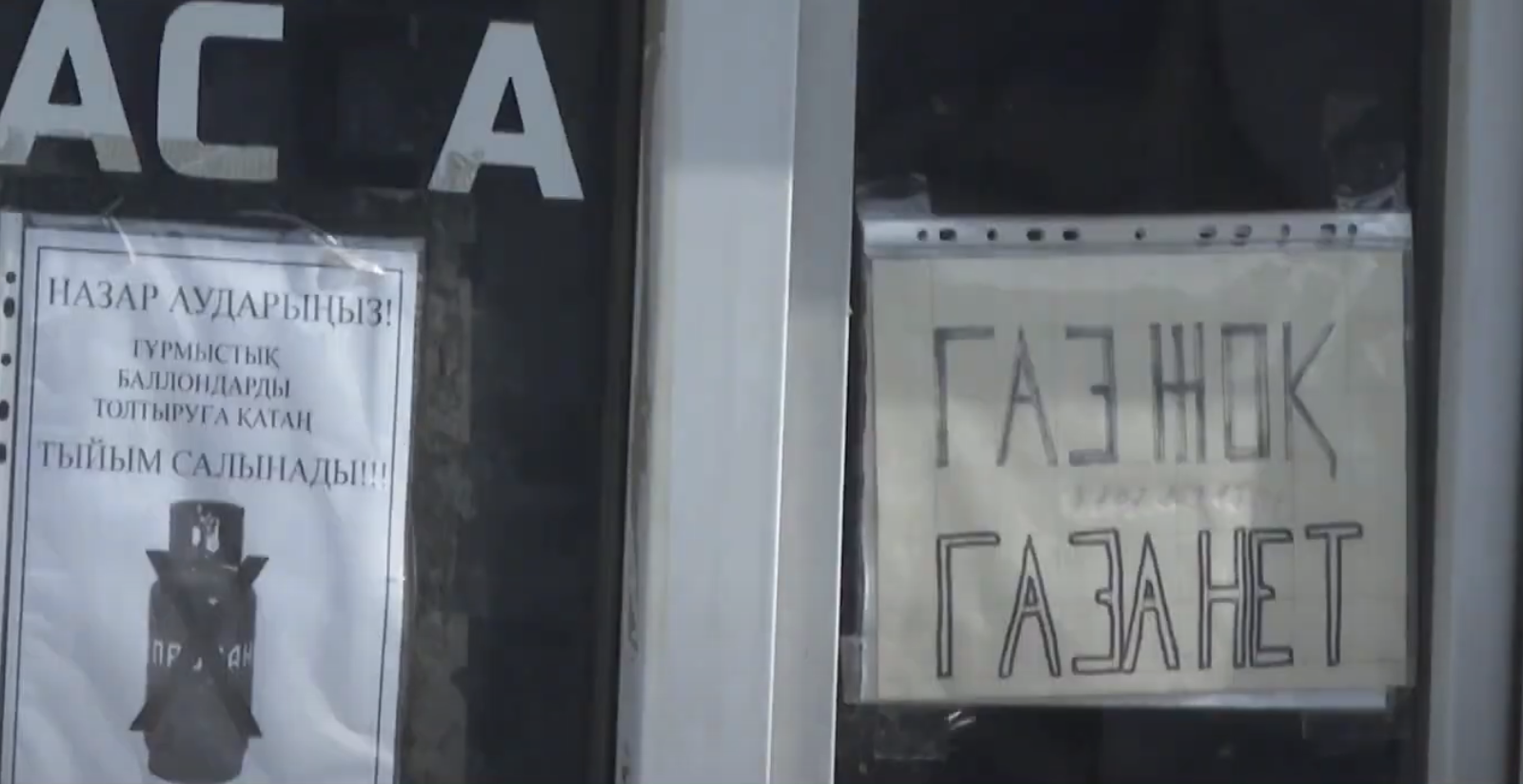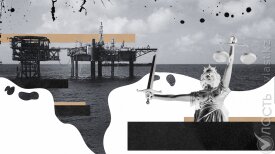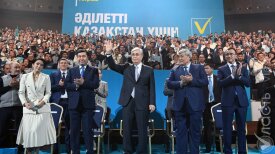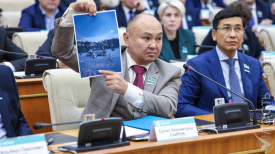Uranium One, a Russia-owned uranium miner, sold its shares in a number of projects in Kazakhstan, the state-owned Kazatomprom announced on December 17. Uranium One sold its stake in the Zarechnoye joint venture to a Chinese state enterprise and plans to divest from the Khorasan-U joint venture and the Kyzylkum company by selling its stakes to other Chinese investors.
Minister of economy Nurlan Baibazarov said on December 17 that the government never received any official proposal to negotiate a multibillion dollar environmental fine against the operators of the Kashagan oil project. For more than a year, the members of the consortium, which include Italy’s Eni and Britain’s Shell, have been rumored to be trying to pay up to two hundred million dollars in order to avoid a 2.3 trillion tenge ($4.4 billion) fine. Environmental fines have often been used in Kazakhstan as tools of political and economic pressure.
Prime Minister Olzhas Bektenov ordered on December 17 “to intensify efforts to increase natural gas and oil output” in Kazakhstan next year. The plan to produce 97.2 million tons of oil next year would put the country at odds with the OPEC+ group of oil exporters, with which Kazakhstan had agreed to reduce production in an effort to boost oil prices. This year, due to maintenance work at its largest fields, Kazakhstan will produce 87.8 million tons of oil, 2.5% below the forecast.
The government said on December 20 that law enforcement authorities received around 100,000 domestic violence reports in 2024, a record slightly worse than the previous year, when the number of reports was closer to 99,000. Domestic violence is a widespread problem in Kazakhstan.
The ministry of justice published a note on December 18 confirming the conclusion of the long legal dispute with Moldovan businessman Anatol Stati and his companies. The sides had already reached an agreement over the summer, halting an arbitration process that had been going on since 2010. The terms of the agreement are confidential.
On December 19, parliament postponed again the establishment of a commodity marketplace for liquefied petroleum gas (LPG). The sudden decision to lift the price cap led to prices more than doubling in January 2022, sparking widespread protests that were violently repressed, in what became known as ‘Bloody January’. The government then froze the market transition for the next two years and now Parliament ruled that the sale of LPG through a commodity exchange will not happen before 2030.
More than 200 workers at the Yuzhno-Zhezkazgan and the Zhylandy mines went on strike on December 17, demanding a salary increase. The mines, located in central Kazakhstan, are owned by Kazakhmys, the country’s largest miner. The company said they would index salaries to inflation and announced a salary increase starting in January.
Heating and electricity utilities will give back 5.4 billion ($10.3 million) to local residents for failing to fulfil their contract obligations last year. In 2023, utility companies had to return 6.6 billion tenge for all the shutdowns and blackouts that occurred throughout the year. The issue of ailing and failing heating and electricity infrastructure has yet to be resolved in Kazakhstan.
The World Bank’s International Finance Corporation (IFC), the European Bank for Reconstruction and Development (EBRD) and the Asian Development Bank (ADB) said on December 19 that they are ready to finance “green” projects in Almaty, Kazakhstan’s largest city. The city administration also plans to issue a 100 billion tenge ($190 million) “green bond” next year at the Astana International Exchange (AIX).
Поддержите журналистику, которой доверяют.








